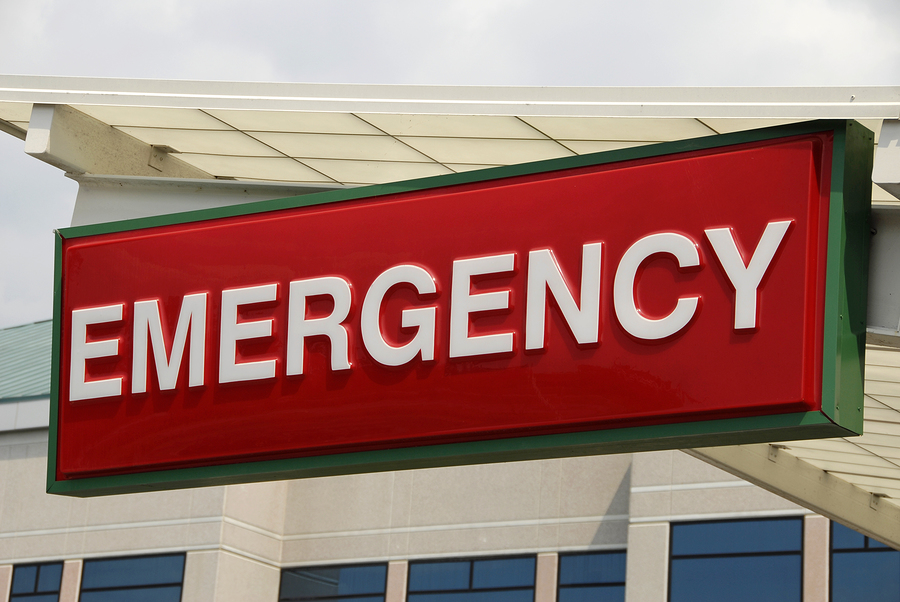
Going to an emergency room can be an incredibly stressful experience. But when something goes wrong while you are there, that stress can be severely heightened. Depending on the severity of your injury, you could be waiting for a long time to be treated. Or you could be the victim of an ER mistake or overworked doctor. The chaotic nature an emergency room may be a contributing factor to medical mistakes in an ER. Nonetheless, when we have to visit an emergency room, we always expect to be given the best possible treatment and attention. But that’s not always the case. What if someone’s mistake were to cause your injury or illness to worsen? Would this be considered medical malpractice under Minnesota law?
What is Medical Malpractice?
Medical Malpractice refers to any negligence that may occur inside of a medical facility, like a doctor’s office, hospital, or emergency room. There are many different kinds of errors that can occur in these facilities, but medical malpractice refers to any mistake that may have occurred because of negligence. For example, if a doctor decided not to perform a certain test, or failed to act in a timely manner, or even something as severe as leaving a tool inside someone after a surgery.
Out of all emergency room errors, about 60% of them are reported to be caused by human errors, while organizational, technical, and other errors rank lower.
Emergency Room Error Statistics
In 2016, the BMJ reported that medical errors are the third leading cause of death in the US. Each year, there are more than 250,000 deaths because of medical error. Science Daily referred to this by saying, “Research on admitted patients suggested that errors are due to the ways doctors process the data they have about patients — in other words, doctors have the right information, but might not act on it in the best way.”
Most Common Medical Errors Made in the ER
Medical malpractice cases can be incredibly tricky, especially because doctors are usually a trusted authority figure in the eye of the public and the law. It can be hard to persuade a jury to believe that a doctor was truly at fault because of an oversight or incorrect dosage of medication. However, there are many more errors that occur in emergency rooms aside from incorrectly dosing medication or not paying close enough attention.
Misdiagnosis
Misdiagnosis can be a huge problem in emergency rooms. Sometimes everything is moving so fast that there isn’t a chance to properly stop and consider all the options. Sometimes all the necessary tests are not ordered; or, something is simply missed. This can lead to misdiagnosis. Misdiagnosis can include untimely diagnosis, failure to correctly diagnose, or failure to treat correctly. This can be potentially life-threatening, especially when it comes to things like cancer, heart attack, or stroke.
Improper Performance of a Procedure
Improper performance of a procedure can include any type of medical procedure mistake, from any level of doctor. This type of error is the most closely related to an actual accident. For example, if someone were to incorrectly administer stitches, or perform a surgical procedure incorrectly. These types of medical errors can range from minor to major, depending on how exactly the procedure was performed incorrectly.
Delayed Treatment
Emergency rooms are often very busy, and it can be hard to get in and be seen right away. However, delaying treatment, especially for some types of injuries, can greatly increase the chance of the injury getting worse or leading to fatality. Emergency rooms are typically pretty good at judging the intensity of a patients’ pain, and knowing when someone needs to be seen right away, but sometimes there may be oversights, especially if the emergency room is busier than their staff can properly handle.
Medication Mistakes
Medication mistakes, including improper dosage of painkillers or other prescription medications can be deadly. Medication mistakes also include giving out the wrong medication entirely, or failing to provide medication at all.
Improper Discharge
Improper discharge refers to the early release of a patient before they are well-enough to leave the supervision of the hospital. In these cases, patients who are released early may find that they get worse after leaving, and have to return for more medical treatment. In more serious cases, improper discharge can lead to death if the patient is dependent on support from the emergency room to stay alive.
Misreading Tests of Imaging Studies
Misreading tests of imaging studies can lead to more complications down the road, such as medication errors, delayed treatment, and even improper or unnecessary procedures. If the imaging tests are interpreted wrong, the patient could be misdiagnosed, mistreated, or medicated incorrectly. Furthermore, this will inevitable lead to to their treatment to being delayed even further as the diagnosis was incorrect in the first place.
Refusing to See a Patient
Refusing to see a patient hopefully doesn’t occur much in many emergency rooms, but it is a problem. Patients could be refused for lack of health insurance, or because there’s no room for them to be treated. This is an unlikely event but it does happen. And, if a hospital turns away a patient at the door or without giving them proper treatment, the results can be severe.
Contact a Minnesota Medical Malpractice Attorney
Because doctors tend to be a trusted party in the eyes of the public, these cases can be notoriously tricky. In order to properly pursue a medical malpractice or medical error claim, one must be experienced in the field, understand the proper methods of investigation, and know the right people to hire for medical testimony. Because of this, you’ll want to find an attorney with experience trying medical malpractice cases, who knows how to properly present your case to the jury. Our attorneys at Sand Law LLC are experienced with medical malpractice cases and we’re ready to help you get the compensation that you deserve. Please contact us online or at 651-291-7263 for more information and a free case evaluation.

